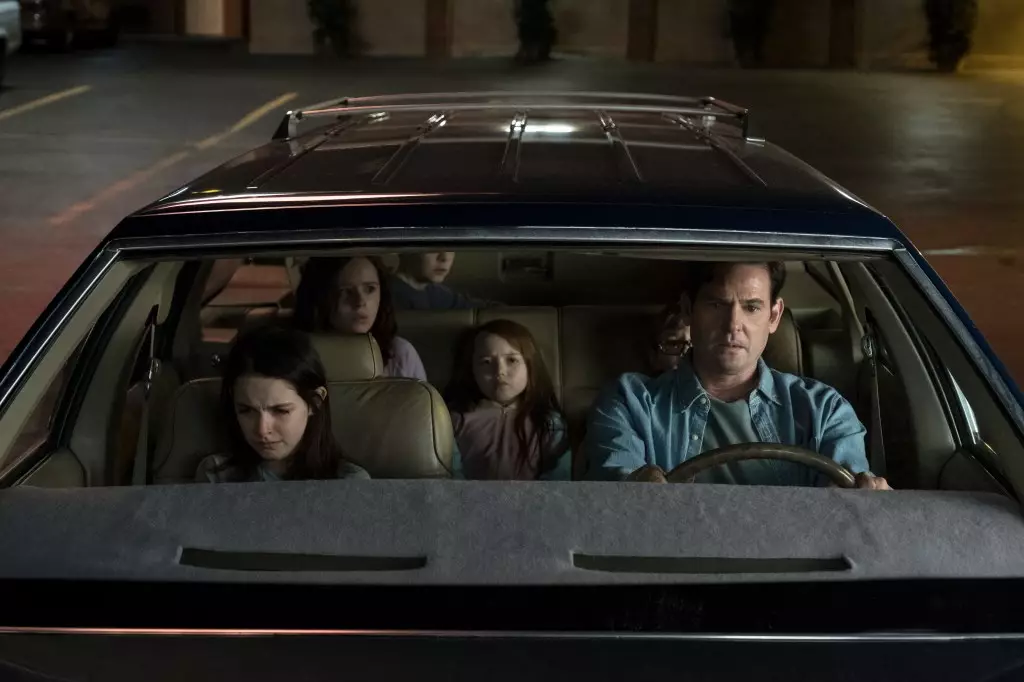Mike Flanagan is not just a horror director; he is a translator of grief. His cinematic endeavors, particularly with Netflix’s *The Haunting of Hill House*, delve deep into the fabric of tragedy, exploring how loss can shape not only narratives but also those who create them. Flanagan’s candid acknowledgment of his personal experiences with grief underscores a poignant reality: horror is often a reflection of our most profound pains. The haunting imagery in *Hill House* is not merely a chilling aesthetic; it’s a cathartic exploration of the nightmares he has faced. When Flanagan states that his work serves as a coping mechanism following a suicide in his family, he offers a raw perspective on art’s ability to heal.
The narrative arc of Nell Crain’s tragic demise mirrors Flanagan’s tumultuous emotional landscape, filled with dreams and nightmares borne from loss. By channeling his experiences into storytelling, he transforms personal grief into universal themes, inviting audiences to confront their own shadows. This kind of narrative bravery is not only commendable; it’s essential in a world where mental health struggles often linger in the background, unaddressed and stigmatized.
Unveiling the Bias Against Horror
During his thought-provoking discussion at SXSW London, Flanagan remarked on the persistent bias against horror as a genre. This is an observation that resonates beyond cinema; it speaks to a societal tendency to undervalue artistic expressions that force us to confront discomfort. The initial skepticism towards horror often dissipates when a project garners critical acclaim, but the cycle of dismissal recommences each time a new horror film is released. Flanagan’s frustration is justified. Horror, with its ability to reflect societal fears, emotions, and the darkest corners of the human psyche, is often dismissed as sensationalist.
In an industry constantly searching for emotional depth, why does horror remain an outlier? Flanagan’s reflections on Jordan Peele’s Oscar-winning films illustrate the dichotomy of acceptance and skepticism that horror constantly battles. The genre encapsulates complex narratives that stretch far beyond mere scares—stories that probe into human nature, relationships, and existential dread. Yet, there exists an ingrained hesitancy amongst critics to fully embrace its artistic merits. Flanagan’s call for broader recognition of horror as a dramatic and artistic vehicle advocates for an imperative shift in perception that is long overdue.
Stephen King: Not Just A Horror Writer
Flanagan’s collaborations with Stephen King further illuminate a significant insight: horror cannot be viewed in isolation. In describing King as a “gooey-hearted, lovely humanist,” Flanagan flips the typical script that confines King solely to the horror genre. Through this lens, King becomes a storyteller concerned with the emotional landscapes of his characters, with horror elements arising organically rather than being the sole focus of his narratives. Flanagan’s realizations about King’s work—like understanding that *It* is not just about a malevolent clown but rather about the poignant themes of childhood and friendship—reflect a deeper search for meaning that transcends genre limitations.
In an era that often favors spectacle over substance, these revelations encourage audiences to reconsider their preconceived notions of what constitutes meaningful storytelling. Flanagan’s articulation of King’s themes crafts an argument for a more nuanced understanding of horror—a genre imbued with richness, empathy, and humanity.
The Future of Storytelling in Horror
Amidst the advancing tides of streamers and commercial pressures, Flanagan’s passionate defense of the monologue is particularly striking. He champions the idea that moments of dialogue hold transformative power, urging the industry not to sacrifice depth for brevity. In a climate where attention spans are shortening, Flanagan’s advocacy for the monologue as a tool for emotional articulation asserts that thoughtful storytelling must prevail. The capacity of a well-delivered line to shift perspectives and engage audiences emotionally is something that cannot be replicated through rapid-fire cuts or hollow spectacle.
The upcoming film starring Tom Hiddleston, formatted in a reverse-chronological order, is anticipated not just for its innovative structure but for its potential to explore layered themes of existence and how lives interconnectedly unfold. As Flanagan continues to navigate the space between horror and heart, he embodies the belief that the emotional depth of narratives is where true artistry lies, challenging both industry standards and audience expectations in the process.


Leave a Reply